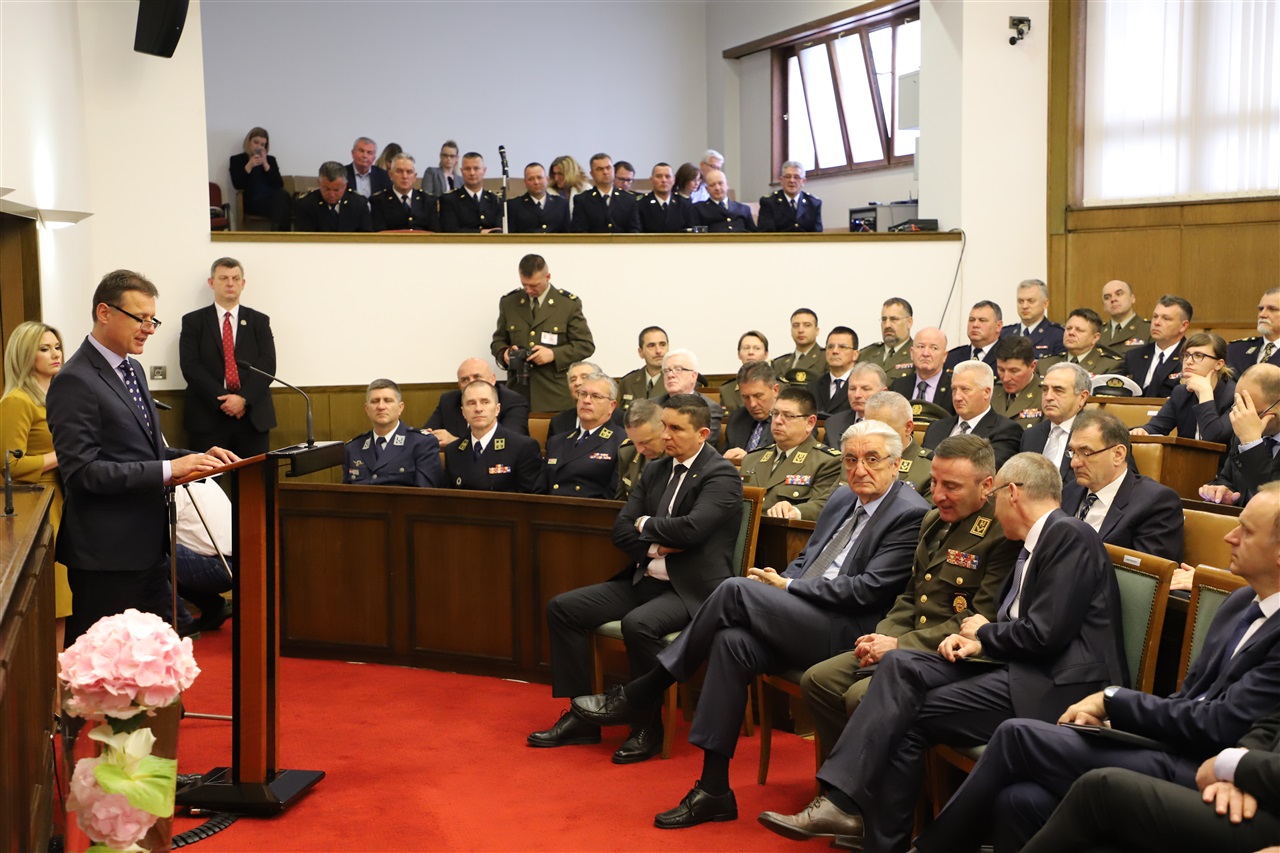
Zagreb - The ninth anniversary of Croatia's membership of NATO was marked at a ceremony held in the parliament on Thursday, with political and military officials in attendance agreeing that by achieving its first strategic goal Croatia had strengthened its overall status on the international scene.
Defence Minister Damir Krstičević said that by joining NATO Croatia had been given the opportunity to discuss the key global issues with other members on an equal footing. He recalled that Croatian soldiers participating in NATO missions promoted peace and security even though not so long ago the country was fighting for its own survival. "We won our sovereignty and independence in the most difficult way - with a war - thus meeting the first of the two strategic political goals," Krstičević said, underlining NATO as a guarantee of security. "There can be no progress without security. Security is the basic precondition of a peaceful development of a society, notably a society with a recent experience of war, like Croatia," said the minister, adding that Croatia would continue to make efforts to gradually increase budget funds for defence towards the desired target of 2% of GDP.
President Kolinda Grabar-Kitarović's advisor on defence and national security, Vlado Galić, said that with its NATO allies, Croatia shared the burden of meeting the three main tasks - collective defence, crisis management and cooperative security. Croatia has been contributing to meeting those tasks by participating in the mission in Afghanistan, where it has been present for 15 years, and in the mission in Kosovo, Galić said.
Commenting on the government's recent decision to renew the Air Force fleet, he dismissed criticism that it was a "waste of budget money". "It is an investment in our future, with long-term effects for Croatia's security, foreign political status, and economic and technological development," said Galić. The ceremony in the parliament was also addressed by the head of Croatia's parliamentary delegation to the NATO Parliamentary Assembly, Miroslav Tuđman, the Armed Forces Chief-of-Staff, General Mirko Šundov, and Parliament Speaker Gordan Jandroković.
A special guest at the ceremony was NATO's chief scientist and head of the NATO Science and Technology Organisation, Thomas H. Killion. He said that 5,000 NATO scientists were sharing their innovations and that Croatia was already participating in it. What we need are scientists, engineers who will be committed and know how to explain to military personnel how to use that science. We... must have both the civilian and the military component together so as to use science to the benefit of the military industry... One should invest in STEM, that's crucial, Killion said. Croatia joined NATO on 1 April 2009.